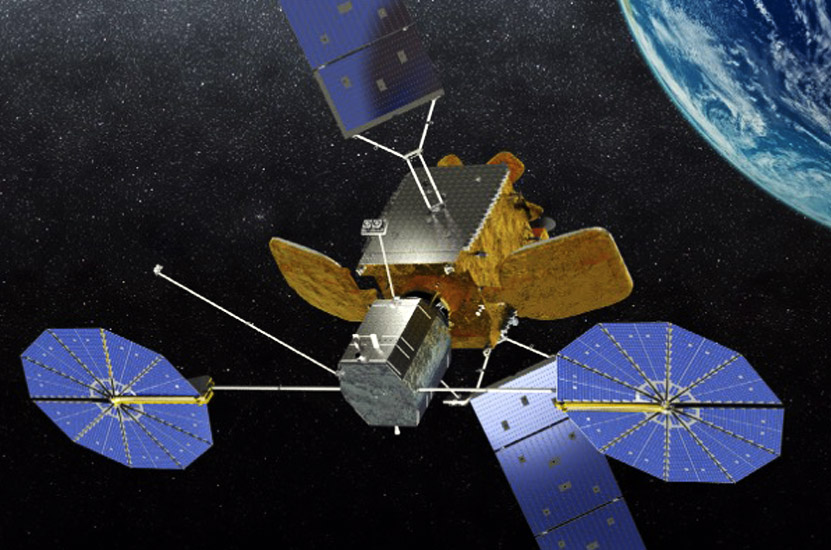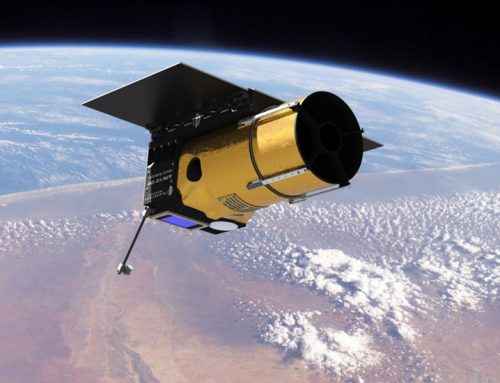Armed with capital and an anchor customer for a trailblazing satellite life extension service, Orbital ATK has signed a contract to loft its first robotic servicing tug aboard a Russian Proton rocket in 2018 on a shared launch with a Eutelsat communications satellite.
The Proton rocket and its Breeze M upper stage will send Orbital ATK’s Mission Extension Vehicle toward geosynchronous orbit, a ring of satellites stationed more than 22,000 miles (nearly 36,000 kilometers) over Earth’s equator, where an object’s speed is the same as Earth’s rotation, allowing a satellite to hover over the same spot throughout its mission.
Orbital ATK and International Launch Services, the U.S.-based company charged with marketing Proton launches on the commercial market, announced the contract Tuesday.
The Mission Extension Vehicle will dock with multiple aging Intelsat communications satellites running low on fuel, keeping the telecom stations pointed correctly and potentially pushing the spacecraft into new positions to cover different regions.
Intelsat and Orbital ATK, through its wholly-owned subsidiary Space Logistics LLC, unveiled the landmark satellite servicing agreement in April.
It is the closest a commercial satellite life extension service has come to launching, and Orbital ATK chief executive David Thompson has said he is committed to the concept, which officials said was bolstered by the merger of Orbital Sciences Corp. and ATK in early 2015.
The first Mission Extension Vehicle, named MEV 1, will blast off in the fourth quarter of 2018 on a Proton rocket from the Baikonur Cosmodrome in Kazakhstan. The Eutelsat 5 West B satellite, also manufactured by Orbital ATK, will be stacked on top of the MEV 1 spacecraft for the first all-commercial dual-payload launch by an ILS Proton.
After multiple main engine firings, the Proton’s Breeze M upper stage will drop off MEV 1 and Eutelsat 5 West B in a preliminary geosynchronous transfer orbit. Each satellite’s own propulsion system will do the rest of the work to circularize their orbits at an altitude of around 22,000 miles.
ILS, Eutelsat and Orbital ATK announced the Eutelsat 5 West B agreement this week in conjunction with the MEV 1 launch contract. The satellite is based on Orbital ATK’s GEOStar platform and should weigh more than 6,000 pounds — about 3 metric tons — at the time of launch



Leave A Comment